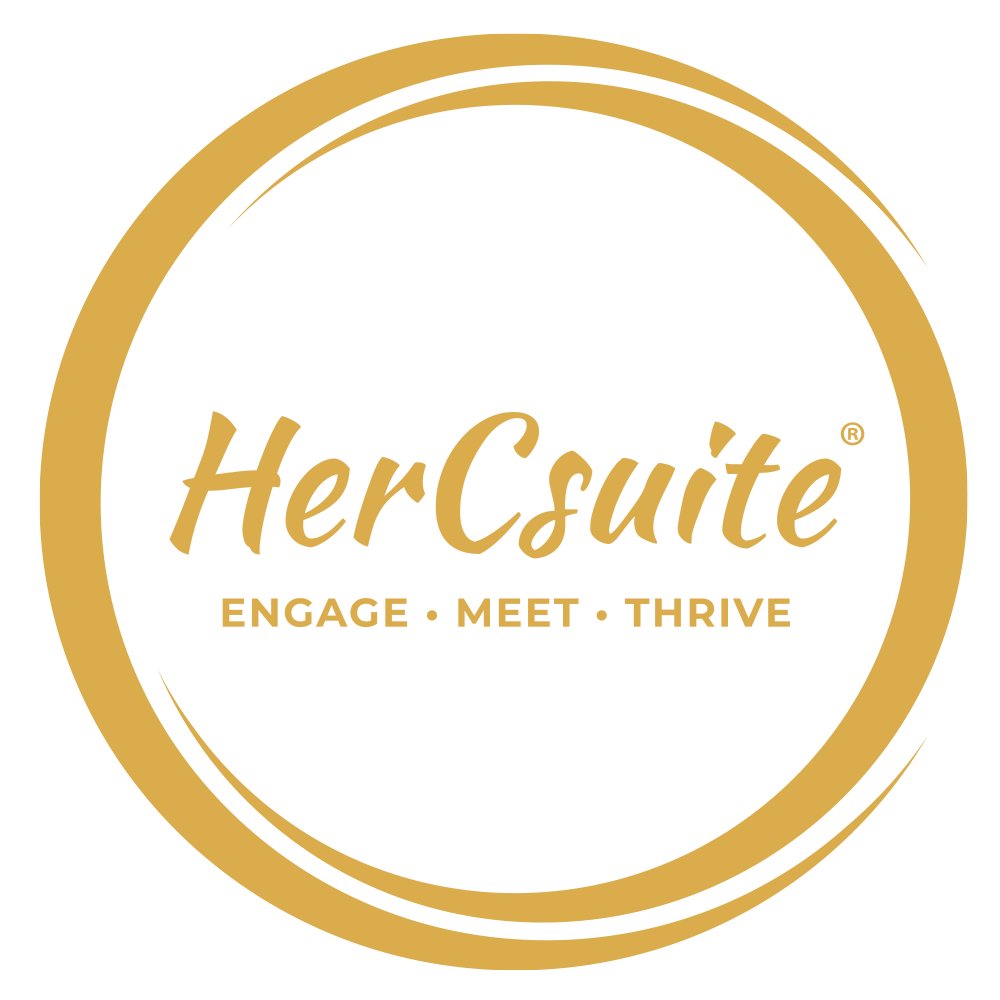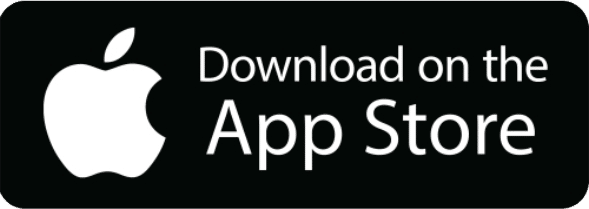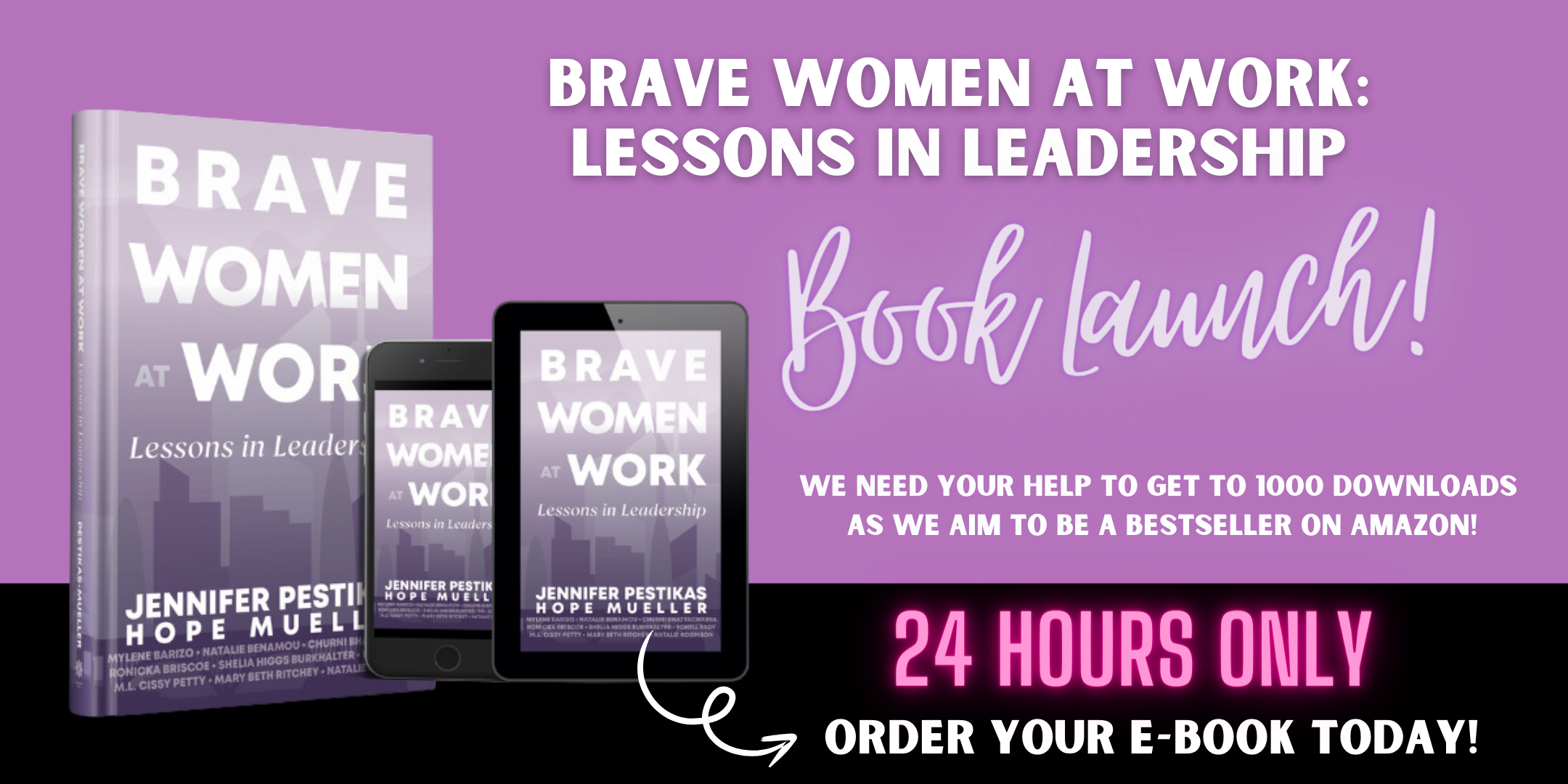Leadership Is All About Trust With Mylene Barizo, Principal, Leadership Ladder
Have you had a mentor help you discover what it takes to be an effective leader? Receiving the right guidance is foundational to creating a positive culture where employees thrive. Leadership starts with trust. On the one hand, it takes you trusting your team to do what they’re called upon to do to deliver exceptional results. On the other hand, it takes your team trusting you to take them on a path that leads to advancement in their careers.
This is one of the biggest things that Mylene Barizo shares in this episode. Before focusing on her consulting work at Leadership Ladder, she had an arc of a career, with experiences ranging from sales and customer service to human resources and management at large corporations including Enterprise and Boeing. As Principal at Leadership Ladder, Mylene uses her experiences from large corporations to elevate aspiring leaders in their careers and create new opportunities.
In this interview, Natalie Benamou and Mylene Barizo discuss:
- Mylene’s journey from corporate to entrepreneurship and how she found her way to HerCsuite™.
- What it was like to be the first of 33 cousins on her mother's side.
- How Mylene’s stay at Enterprise gave her the training and experience she needed to excel for the rest of her career.
- The importance of trust in leadership.
- What Mylene looks forward to in her transition to her 3.0.
- Discovering Board opportunities and ways to leverage her experience.
Resources:
Visit HerCsuite™
HerCsuite™ Leadership Development
HerCsuite™ Radio is sponsored by Leadership Development. We offer leadership development for every phase of a women's career, individual, specialized and group development. Find the one that is right for you and schedule a call to learn more.
HerCsuite™ Founder and Podcast Host Natalie Benamou can be found on LinkedIn | HerCsuite™ LinkedIn | HerPower2 LinkedIn
Thank you to Mylene for being a valued member of HerCsuite™, a featured speaker for HerCsuite™ Cross Organization DEI Council and for being on the show.
We thank you for listening to the show and shining your light in the world! We would be honored if you subscribed and shared this episode with a friend or colleague today.
—
Show Transcript:
Mylene, I’m so excited to welcome you to the show. Thanks for being on the show.
Thank you for the invitation. I’m thrilled to participate. I’m excited to have a little chat and see where this conversation takes us.
I am so happy to both have you as a member of HerCsuite™ and a valued person in our community. You contribute by giving tips and other things. I’d love, for our readers who don’t have the benefit of knowing you the way I do, for you to share a little bit of the arc of your career and what brought us to this moment now.
Part of what is so important to me does go back. It’s important for folks to understand that I am an immigrant. I immigrated from the Philippines when I was 3, going on 4, and grew up in Los Angeles. I’m a first gen. I am the firstborn of the firstborn. My mother is the oldest of 10, and I’m the oldest of 33 first cousins on my mother’s side. When you think about that in a cultural context, not having people who could guide you through the college application process, career, and all of that, there was a lot of trial and error, and go figure it out on your own.
I was grateful after graduating from UCLA to land a job with Enterprise Rent-A-Car. I had hoped to go to law school, but frankly, my parents couldn’t afford it. I said, “Let me get a job and see what happens. From there, maybe I can save some money and go later.” I fell in love with the concept of merit-based promotions. I appreciated that if you worked hard, you could build a career. I’m not going to lie. I have a nice income because, as an immigrant family, that was an important thing.
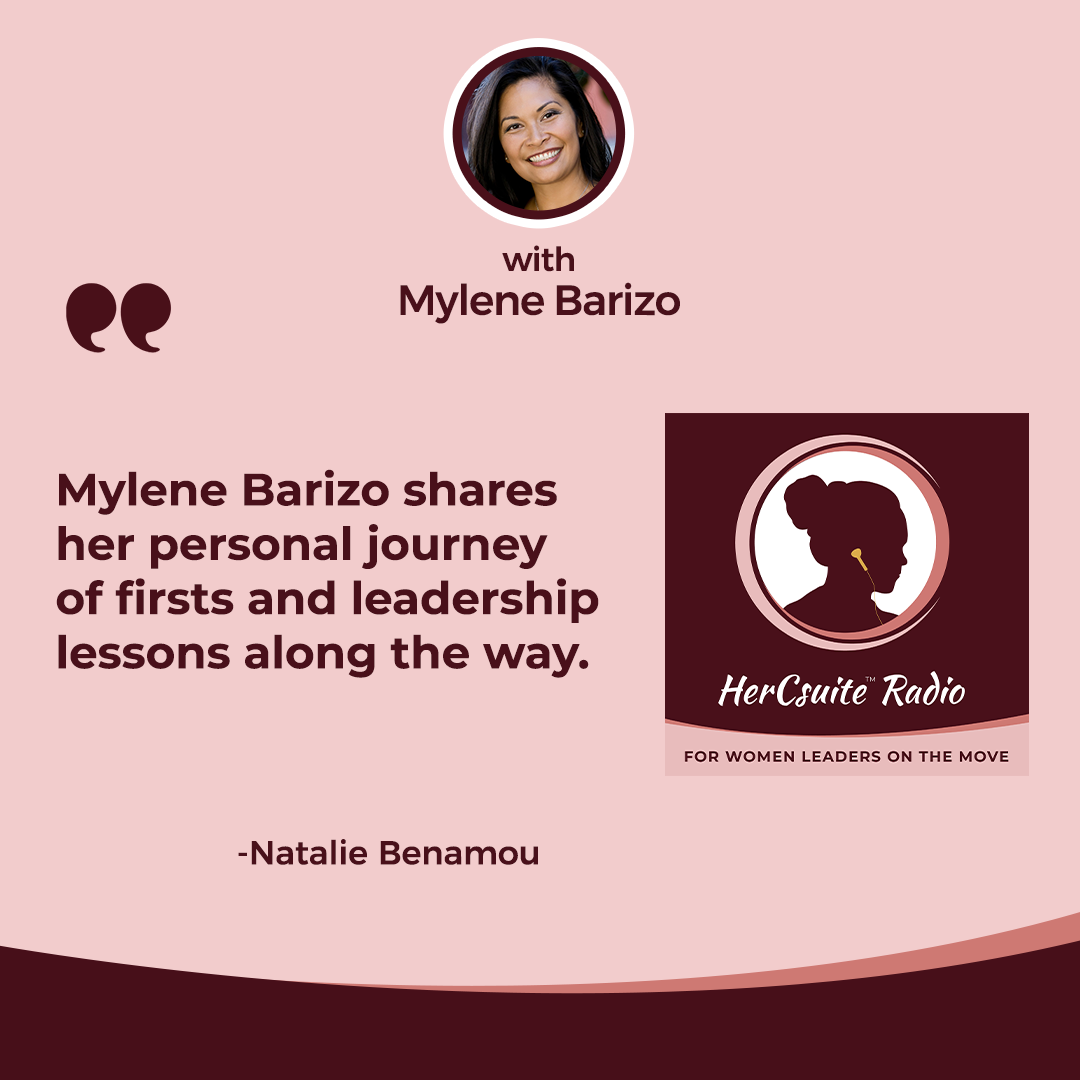
Enterprise was such a dynamic environment. Retail, customer service, and sales are hard. You’re on your feet. It’s emotionally draining. You’re learning all these things and you’re trying to figure out how to be a young professional in all of it. My career at Enterprise took me through so many facets of business, dealing with the consumer face-to-face, and getting promoted into a management role very early in my career. Also, learning how to maximize my team because I had to manage beyond myself, thinking about operations, the actual inventory, receivables, and market share. All of those pieces were so helpful as my career continued.
I evolved into an outside sales role, which was super exciting because I was one of the first, what they call now, corporate account managers. It’s a B2B component of Enterprise that didn’t exist prior to me and some of the pilot folks starting this. I learned from that role that outside sales are very lonely and I wasn’t excited about it. I went to my boss, leader, and mentor and I said, “You trusted me to pilot this role. I trust you with my career. I don’t see myself doing this for the rest of my life. If there are other opportunities, I would love to learn.” He then said that there were some changes to “the personnel department,” which dates me. We used to call human resources personnel. He thought, “Maybe that’s a place for you to explore.”
I said, “Recruiting? Being able to go and talk to college students? I love that. That would be great.” He then burst my bubble and said, “That’s very similar to outside sales. This HR generalist role is a good place for you.” At the ripe old age of 24 at that time, I burst into tears and was like, “You’re going to sit me behind a desk. You hate me. I’m never going to go anywhere with this.” He said, “Mylene, everything about Enterprise is entrepreneurial. Build it to what you would like to see the role become,” which was fascinating. I thought, “Great. Awesome.”
From there, I built a career in human resources. I was fortunate to work in Southern California, then moved to Washington State, overseeing the Pacific Northwest. I had cradle-to-grave responsibilities with talent acquisition, development, and even expanding the role to include some government relations and working with the community. That was super fun.
After a time there, my boss, leader, and mentor decided to retire. New leadership came in and unfortunately, it wasn’t a great match philosophically. I took a leap. I left Enterprise without knowing where I was going to go or what I was going to do. Through conversations with friends and network, I found myself at the Boeing Company as the HR director partnered with the CIO for the enterprise. Imagine going from retail, customer service, and sales environment-type people to knowledge workers. That was a huge shift for me. I had to learn a new language. I had to understand how to work globally, which I hadn’t done before. To work on these big, ginormous, hairy human capital strategic projects was just exciting.



I was fortunate to work with Ted Colbert, who was then the CIO. His big initiative was to modernize the technology stack of the entire Boeing enterprise. Again, it was something I’d never fathom how to work through, but it did teach me a lot about this sector of industry, which is prevalent. We rely so much on technology. It helped me learn skills around leveraging legacy talent, building in the next-gen talent, and seeking resources around the globe for a follow-the-sun approach.
After an amazing run with them and building some amazing experiences and friendships, unfortunately the 737 situation happened, which everyone knows about. The last few years of my work with Boeing were focused on sadly laying off people and redeploying people. I came to the conclusion that this isn’t fun. This is not the type of HR work that makes my heart happy.
When the opportunity to take advantage of an executive layoff package came through, I said, “Let’s give this a shot.” Once again, no plan for what was going to come next. I walked away from my corporate career saying, “We’re going to trust in the universe and see where the universe will take us.” The universe said, “Maybe it’s time to dust off your Leadership Ladder LLC,” which I established between my enterprise and Boeing career, and go back to helping folks that could benefit from my corporate experience and growth. Do some executive coaching and think of some other fun things to do. I’ve been dabbling in blogging. I created a workshop/model that I copyrighted and got approved a few years ago.
In the process of all of that, I found HerCsuite™ as a way to reach other women, build my network, and with COVID and everything, has the means to connect with people. I hope that touches on the broad spectrum of experiences that I’ve had all the way from retail sales to my corporate support of C-Suite members for Fortune 50, and exploring what I like to call 3.0 What’s Next For Me?
Many things are coming to mind. I’ve often thought that Enterprise was and is one of the best training grounds for people. I never worked for Enterprise. I was in business development my whole career, but my starting point after college was Cutco. If you can sell door-to-door with people doing crazy things like slamming the door in your face or crazy things happen during my demos like cutting the rope and the penny, and kids are screaming and running around, and all these things. You’ve got to stay focused at the moment.
They’re similar in the way of excellent training to be ready for anything and I understand now the name of your business because of the ladder that you did within that organization looking for opportunities and being resilient. Many things come to mind about resilience. Who hasn’t cried in front of their bosses? We were twenty-something. We all have. It’s like, “I don’t understand.” You had that exposure, now you go to your 3.0. Also, all the things you did at Boeing helped you, but that core beginning must have helped you prepare in some way.
I’m eternally grateful to the Taylor family and everything that Enterprise did in terms of establishing a foundation for me. It might seem on the surface that there isn’t a space for that entrepreneurial thinking within an engineering technology aerospace company like Boeing. It was fascinating to take the elements of risk tolerance or risk aversion and apply those components to what I was doing at Boeing.
Boeing was transitioning from what they call in technology terms a waterfall approach to building technology. You do one thing and it trickles down to an agile approach. Anyone that’s out there that’s in technology knows about this. You do a little something, try it, test it, tweak it, and do it again. It’s an iterative process of evolving and growing towards whatever that product might be. I believe there’s so much entrepreneurialism that goes into that because you have to be open and willing to try and fail. That has to be part of the component of iterating.
As we were building new technology systems, there was also an entire revamp of the service delivery model for the HR function at Boeing. Everything at Enterprise was to make it happen. There’s nothing that you can do that we can’t fix or our safety net of senior leaders, systems, and whatever can’t come back and make okay. There was a real encouragement to go out there and try and fail.
At Boeing, we’re looking to revamp our HR model, I was like, “Let’s change it.” I was fortunate to have a team that was willing to let me lead them in what was to them unorthodox ways of trying new things and building a new system. The end result of that was I was so proud that my team became those early adopters. They got promoted to other teams to help with that transition. I was able to promote some of my top performers into some other roles so that they could go lead other teams. You have to have that willingness to go into the unknown.
You have to have the willingness to go into the unknown. Share on XI was able to take entrepreneurialism and other skills from Enterprise into my Boeing world, even though it might have looked a little different. It meshed very well with the philosophy and the approach that our CIO was trying to bring into the business, which is improving that risk tolerance, opening up that dialogue for feedback and critical analysis of what was going right and wrong, and what I like to call building a circular communication element.
Not a waterfall from the top all the way down, but bringing it to the various teams and then circling it back up to leadership so that we can understand what’s happening with the other components of the business. That takes a lot of psychological safety and willingness to say unpopular things. Those are all components that my experience at Enterprise helped me leverage into my new space. I hope that gives you a little bit of that bridge.
It does. What I’m hearing also from a leadership perspective and amazing leadership philosophy is entrusting your team, developing them, and letting them fly to the next thing. Often, you can hear in big corporations that sometimes leaders aren’t lighting the way like you did to find other opportunities for their team. What was it that helped you know to do that? You had all these experiences, but is it something that came naturally to you or is it something you learned? Some of our readers have big teams. They’re trying to manage or thinking about succession planning and they’re not sure how to do that. What were some of the things that helped you figure that out?
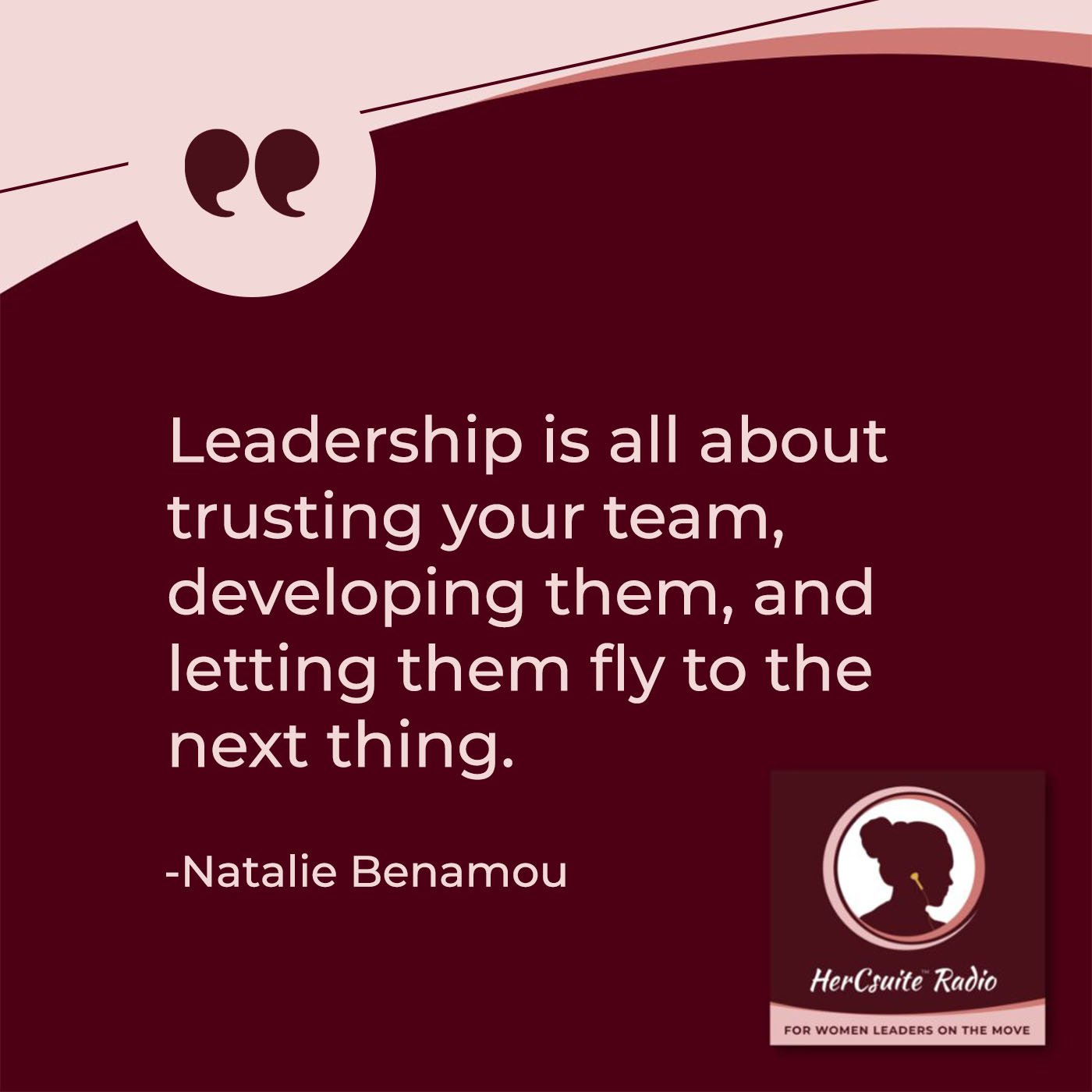


Rich Thrasher was my mentor boss and still a friend from Enterprise. We always used to joke about some of his Thrashers as he would call them. One of the things that he shared with me long ago in my career as I was transitioning into some different leadership roles, he goes, “Barizo, here’s what you’ve got to remember. Leadership is about everybody but you.” I was like, “I need to think about that for a minute.” That stuck with me, especially when I transitioned into Boeing. It was obvious evidence that I knew nothing about technology. I’d never worked with that type of workforce before. I did not know the processes and procedures, and they’re very intricate and complex at Boeing company.
Leadership is about everybody but you. Share on XI had to lead from a place of trust and be able to say, “I don’t know what you do every day. I’m going to try and learn as quickly as I can, but there’s no realistic way that I’m going to do all that you do. I am going to trust that the information you’re giving me, the guidance that you’re offering, and the suggestions you’re putting in front of me are not trying to land me in jail.”
That would be a bad thing. We don’t want that. That’s not a good idea.
“Don’t land me in jail and you aren’t intentionally trying to run afoul of the processes and procedures that are out there. Beyond that, let’s figure out options. The only role I have here is to make the decision and wherever that decision may take us. If it goes sideways, I’ll take that hit. If it goes amazingly, well then I want the privilege of being able to put you in front of the leaders, so you’re the ones that get the glory for what you did.” That one concept of leadership being, “about everybody but you,” was something that framed my approach.
It’s hard for someone to say, “I don’t know,” but that’s something that I grew comfortable with back in my Enterprise days. When I came to Boeing, it was very easy for me to say, “I don’t get it. I don’t know what that is. Somebody teach me and educate me.” By building those relationships with the right people, learning, and listening, I’m very proud of the culture that I’ve built with my team. They trusted me to put them in positions where they could grow. They trusted me to open doors for them or take roadblocks to projects away. With that trust, the team was able to come together, trust one another, and we were able to do amazing things. I’m so proud of what we accomplished while I was there.



I saw a post from Amy Cuddy. I think you know who she is, The Power Poses. It’s one of my favorite things. I do it all the time. If people see me now, I’m usually doing the power pose. I’m doing the Wonder Woman, but I don’t have my hands on my hips. On LinkedIn, she had a post about trust. She was at a World Leadership in Dubai, I’m not sure, but she was at a global forum. She said, “The secret to leadership is it starts with trust.” What you were saying is exactly that.
Trusting that people are telling you the truth, gives them the opportunity to feel empowered and know that also you will be that sponsor. You were also describing sponsorship. Behind closed doors, people are asking you questions, “Who are you going to lift up?” Trust is all about that. Knowing that your leader is going to be there for you not only that leadership’s about everyone else but to lift up everyone around them. What a beautiful metaphor.
One last question about where you are with your career because it’s so interesting. You started your entrepreneurial journey yourself, so not with someone else, but for your own self. You’ve had some interesting opportunities come your way. It’s being open to those messages. The windows are open and we have to be open to that and not fear failure, but going forward. Share with us a little bit about what that’s been like this 2023 and how you’ve taken opportunities that other people might have not even embraced, but you did. It’s so exciting to see that transition for you in your 3.0.
Thank you. I don’t know what I don’t know. I’m going to be open to whatever the world might bring relative to my website, blogging, and workshop/model. I started having networking meetings and I set a goal for myself in 2022 with Leadership Ladder to have three clients for my workshop/model. That was an epic fail. It didn’t happen. It was disappointing, but in the process, I met some amazing people through networking. I said, “I like who they are. I love their energy. There’s alignment in our values. I’m going to keep talking to these people.”
Those conversations resulted in November and December 2022. I was invited by an organization called CivilianCyber to be a part of their advisory board. CivilianCyber is all about helping veterans, but also others transition from the military into private industry. They have IP that allows companies to seek out the talent within certain pockets that is transferrable and able to then accelerate their ability to bring the right talent in and grow that talent.
They support that growth with training systems within the companies. They also help companies do some unusual things like build apprenticeship programs within technology so that you can grow the talent yourself and build them into your organization. That aligns so much with my belief and value of diversity, women, BIPOC, talent, and veterans. I’m like, “I like these leaders, I like what they’re doing and I want to be an advocate and an evangelist for them.” That’s one element.
The other piece is I was talking to some interesting entrepreneurs, a gentleman based in Japan and a gentleman based in Guadalajara, Mexico. We are now part of a startup that is in essence, bringing together two disparate entities, helping them align, and improving that alignment through some IP, training, and various systems that we’re building. It is so that they can accelerate towards the solutions and execution of projects. This is typically in the technology space. It’s a Japanese-based company helping Japanese tech companies access global talent, which is a struggle because of some of the elements of Japanese business culture, language, and different things like that that are part of it. That’s exciting.
I’ve never been part of a startup before. I’m terrified, thrilled, and challenged. These folks that I get to work with are super fun, super smart, and very generous about teaching me in this new space. Lastly, I met a wonderful female-owned company called Pointers. Neetu Razdan is the CEO. Her background is in technology. They do HR SaaS.
As they have been building this software and putting it out to clients, clients have reached out and said, “We would love some additional support on X, Y, and Z things relative to our HR space.” They’re saying, “We don’t do that. We just do the SaaS.” In an effort to bring in those additional services, they’ve invited me to be one of their in-house consulting resource group. These are trusted advisors that when clients buy the software and need additional support, Pointers then will say with a lot of confidence, “These are people that we believe in, trust, and work with so we would recommend that you consider them for those consulting efforts.”
I’ve got three very different types of opportunities. All of them are giving my little gray matter brain cells a chance to exercise. As I like to say, it keeps me out of jail and keeping busy. It’s just a blessing to me in my 3.0. I was able to choose interesting projects that feed my soul, work with amazing people, and explore things that perhaps would not have come into my world had I still been in my corporate role.
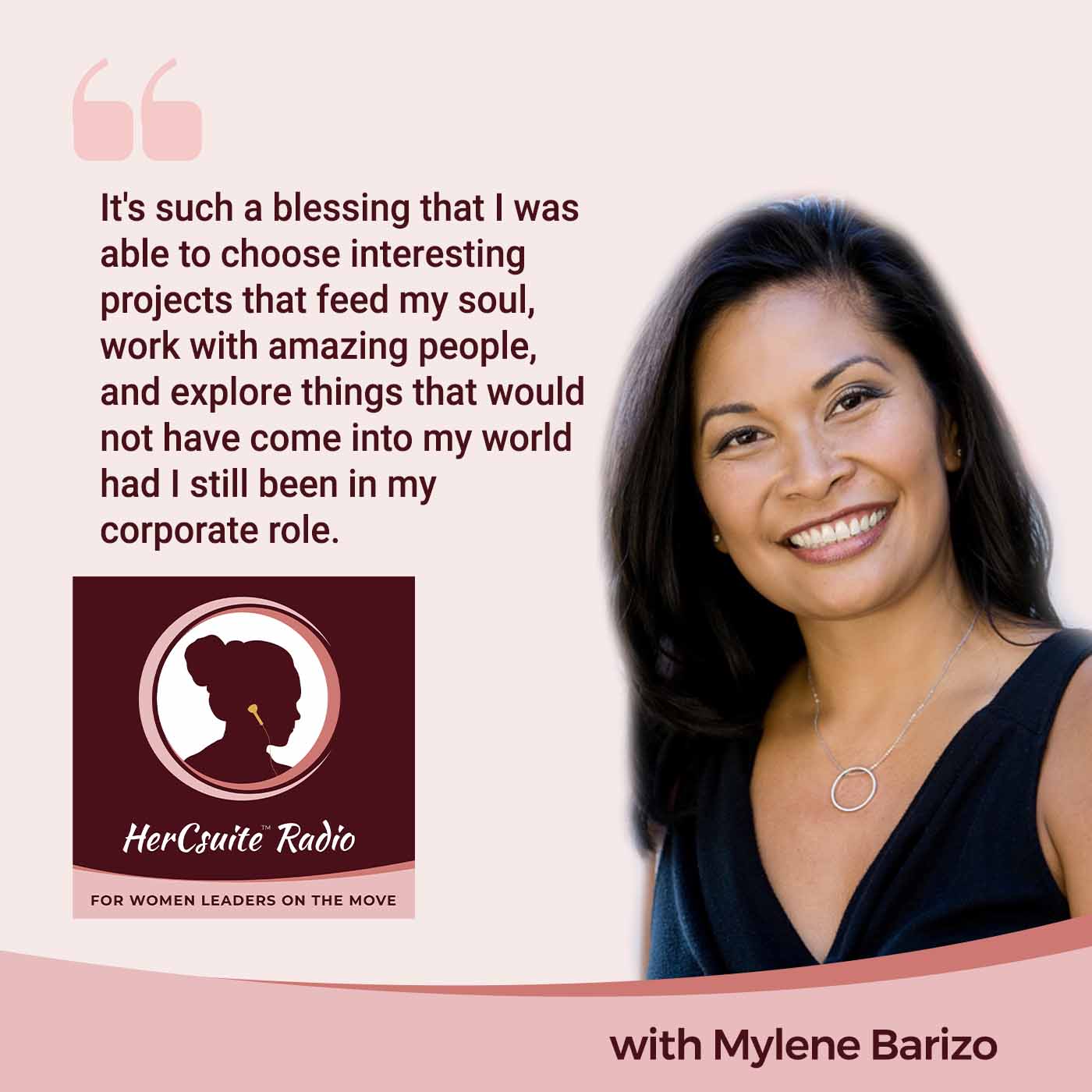


I’m so glad you’re in my world, and I get to see you in multiple programs that we have in HerCsuite™ from Next, which is people developing their 3.0, to business leaders where we entrepreneurs get together and brainstorm and boards, which is the advisory piece. I get to see you at all these places. I’m so lucky to be able to do that with you. It’s such an honor. It’s been incredible to get the chance for our readers to learn about you, all the things that you’re doing, and how if something isn’t working to be ready to adjust and look for other opportunities. That’s something you’ve done your whole career, which is so inspiring. If people want to know more about you and all the things you do, where should they go to find you?
Thank you. It is www.Leadership-Ladder.com. My email is [email protected]. I would love to be a resource, support, and help to anyone out there. I’m always interested in exploring ideas. Thank you again, Natalie, for the opportunity to share and for this fun conversation. I appreciate it.
Thank you so much. I get a chance to see you later, so I’m super lucky. Thank you for being on the show. I can’t wait for our readers to read it.
Thank you.
Important Links
- Leadership Ladder LLC
- CivilianCyber
- Pointers
- Next
- [email protected]
- https://www.LinkedIn.com/in/NatalieBenamou/
- HerCsuite™ Radio is sponsored by Leadership Development.
- Find the leadership program right for you here: Find Your Program
About Mylene Barizo



HR areas of expertise include: diverse talent acquisition and retention, cultural transformation, and building strategic internal and external partnerships. Strategically aligning HR components with business initiatives, she effectively blends HR goals and operational deliverables into a strong business partnership.
Natalie Benamou
Founder, CEO
HerPower2, Inc, | CGO HerCsuite™ | Podcast Host HerCsuite™
Natalie founded Herpower2, inc. to create products under HerCsuite™ to empower women to make a lasting impact today and into the future. She takes a ‘serve first’ approach to life and has applied this principle throughout her career, serving in leadership positions in business as well as non-profit organizations.
Share this story:
HerCsuite® is an official product of HerPower2 Inc. | all rights reserved – Privacy Policy – Terms & Conditions



